More in this section
On this page
Electricity and natural gas works our devices, heating and cooling our home. Learn how to operate your equipment and devices safely.
Natural gas service disorder
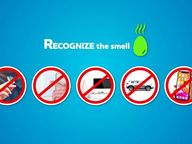
Do you know what to do if you smell natural gas?
More than half of all homes in Manitoba are heated with natural gas – and although leaks are rare, they may be dangerous. Watch to find out what you are looking for and how to deal with natural gas leakage.

Smart ideas: natural gas safety
“If you smell the gas, then act quickly.” How can you determine the leakage of natural gas and what is the procedure if you do? Watch this video to find out.
When natural gas service is disrupted, we tell decisive clients such as hospitals and higher centers first, then all other customers.
In the event of a natural gas accident, we are working closely with local emergency respondents. It may involve a temporary evacuation or close the streets to keep you safe until we stop the leakage. The repairs may include drainage.
Although rare, natural gas interruption can occur at any time. Usually the disorders are short -term but complex repairs for the gate station (where natural gas pressure is reduced and distributed) or the pipeline may mean that your service will be outside for several hours.
What do you do during natural gas interruption
Do not use equipment reserved for portable fuel inside your home or garage. This includes a portable birth, courtyard, barbecue, camping stove, robean or kerosene heaters. Natural gas furnaces and devices should not be stopped. It should work normally when restoring energy. Make sure to ventilate the stoves and stoves that burn the wood properly, and there is no risk of carbon monoxide poisoning (CO).
If natural gas service comes out in cold weather:
Turn the thermostat down. Place additional clothes layers. Close curtains and curtains and avoid opening doors to keep the heat in your home. Use an electric heater (if the electrical power is still operating) to maintain heat in one major living room. Leave cold water dripping from the faucets if the tubes are at risk of freezing.
To restore natural gas service safely, we must close the gas supply for every customer in the area served by the damaged pipeline. We do not need to enter homes or companies to do so.
Back to the top
Keep the natural gas meter
Snow and ice on your natural gas scale can create accumulation on the regulator. This can prohibit the ventilation opening and allow the pressure of excess gas in your home, or put the pressure on the meter tubes and cause gas leakage.
Back to the top
Oven
Clean natural gas and heating system regularly and serve them annually.
Be sure the appropriate blood circulation around the oven, tubes and devices by maintaining the chaos of the area. Learn the location of the closure valve for each device and how to use it. Do not use or store gasoline, fumes, flammable fluids, or combustible materials near the natural gas oven or a water heater. Check the flame from all natural gas devices regularly – it should be blue. The yellow flame may be a sign of carbon monoxide (CO).

Smart Ideas: Carbon Oxide
What is the first carbon monoxide and how can you prevent this silent killer? Watch this video to learn how to protect yourself and your family.
Back to the top
Takra and GFCIS
The mutation inhibitor reduces the amount of electricity during the increase in energy and may protect your electric devices. The licensed electricity can install an increase in the main service panel. Add the boom inhibitors the point of use such as energy bars or additional ingredients as well.
The mutation inhibitor will not protect your devices from a direct thunderbolt. Separate your computer if you will not use it over a long time.
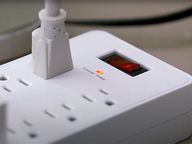
Smart Ideas: Protecting the boom
Learn how Hama can help increase the point of use and protect the main service in protecting your valuable electronics.
GAFCI cut off the energy into a device if the current loss is discovered. Install GFCI ports where electrical appliances may come into contact with water (for example, bathrooms, kitchens, oasis).
GFCIS is required by a symbol in new houses but can be installed in old homes. Lightning and high energy can harm the GFCI circuit. Follow the manufacturer’s instructions and test the GFCI monthly outlets.
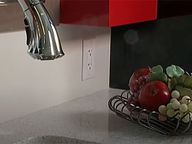
Smart Ideas: GFCIS
GFCI can prevent electric shocks or injury. Learn how to test your GFCI to make sure it works properly.
Back to the top
The cords of extension and its outlets
It can cause excess -loaded ports and damaged extension ropes. Extension cords should only be used as a temporary connection. If the permanent wires are required, ask a licensed electrician to install more ports.
A child is your electrical ports if the young children are in your home. Do not connect more than one main device in the port. Keep the outdoor wall covers closed when they are not in use. Do not deal with a wire in the rain or if you are barefoot on a wet surface. Keep the entire cord extension while using it to avoid high temperature. Do not connect the ropes together – use a long wire enough for the job. If it is outdoor, use an extensive extension wire for outdoor use. Do not run a wire under a rug. Always use a 3 companies and not remove the base pin from the plug.
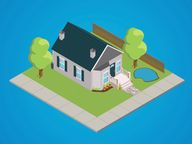
Electrical safety throughout the house
Watch this video to see how to prevent electric shock or shoot at your home.
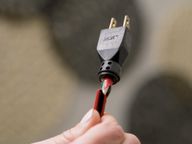
Smart Ideas: Electrical Safety
Are your devices, the cords of extension, and the outlets of its outlets from the dangers of fire? Watch this video to find out how you can prevent electrical fires – and how to deal with a hundred if it happens.
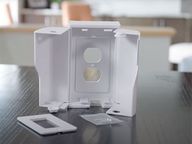
Smart Ideas: Child Safety
Learn how to maintain your child’s safety from the potential electrical risks in your home.
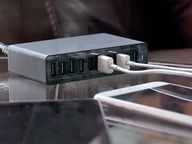
Smart Ideas: Shipping devices
Always use charging devices specifically designed for your electronics. Learn how to ship your devices safely.
Back to the top
Keep your work area dry. Moisture and electricity can give you a fatal shock. Use an isolated dual energy tool or a GFCI to reduce the risk of trauma.
Turn off the tool before handling the ingredients to avoid cross -sized startups. Connect an energy tool with a wire cover cover in a nascent port. Separate the power tool that fell into the water before touching it.
Back to the top
Sewage
Natural gas lines may intersect with sewage service lines outside your home or business. These intersections are called Bores the cross. The damage to the cavity can cause natural gas leakage, fire or explosion.
The sewers should be examined before you try to wipe them with rotating equipment or water aircraft. Even if your home does not use natural gas, pipelines may be nearby. If the inspector does not find any evidence of a cross -cavity, they will tell you to go ahead.
Contact us on 204-480-1212 (Winnipeg) or 1-888-624-9376 (Toll-Free) to arrange a free examination.
If there is an opportunity for the cross -cavity, we will correct the situation so that the sewage can be completed safely.
You do not need to call if you or your plumbing:
Fix the problem inside the walls of the building; Carry out the video to check if there is a cross -cavity; Try to wipe a blockage with draining or payment bars.
Back to the top




